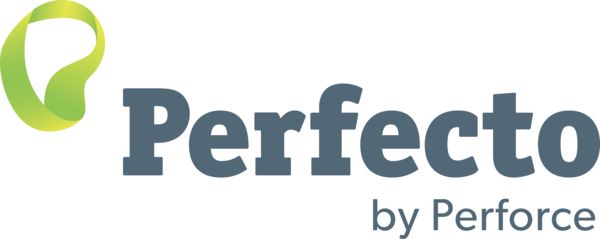This is the multi-page printable view of this section. Click here to print.
Blog Posts - 2023
- InvalidSelectorException has changed
- Selenium 4.9.0 Released!
- Let's meet at SeleniumConf, Once Again!
- Headless is Going Away!
- Selenium 4.8.0 Released!
InvalidSelectorException has changed
InvalidSelectorException now extends from WebDriverExceptionBefore Selenium 4.8.2 in Java and C#, when an invalid locator was used to identify an element, the resulting behavior would be inconsistent in our bindings.
For example, let’s check the following code:
ArrayList<Class<? extends Exception>> expectedExceptions = new ArrayList<>();
expectedExceptions.add(org.openqa.selenium.NoSuchElementException.class);
expectedExceptions.add(org.openqa.selenium.StaleElementReferenceException.class);
expectedExceptions.add(org.openqa.selenium.ElementNotInteractableException.class);
expectedExceptions.add(org.openqa.selenium.InvalidElementStateException.class);
return new FluentWait<>(driver)
.withTimeout(Duration.ofMillis(ELEMENT_IDENTIFICATION_TIMEOUT))
.pollingEvery(Duration.ofMillis(ELEMENT_IDENTIFICATION_POLLING_DELAY))
.ignoreAll(expectedExceptions)
.until(nestedDriver -> {
nestedDriver.findElement(By.xpath("invalid-xpath")).click;
});
The expected result before this change would be that the driver waits until the timeout expires and then throw an InvalidSelectorException.
This doesn’t make much sense because a broken/invalid selector would never fix itself, and hence should throw immediately.
This was discussed and agreed during the TLC meeting on August 17, 2022, and implemented through the pull request 11727 and the following commit.
With the changes mentioned above, an invalid selector will throw an InvalidSelectorException immediately.
Please note that this may have an impact on backwards compatibility if you are not expecting this exception to be thrown while handling invalid locators.
Stay tuned for updates by following SeleniumHQ!
Happy testing!
Selenium 4.9.0 Released!
We’re very happy to announce the release of Selenium 4.9.0 for Java, .NET, Ruby, Python, and Javascript as well as the Grid and Internet Explorer Driver. Links to everything can be found on our downloads page.
Highlights
- Chrome DevTools support is now: v110, v111, and v112 (Firefox still uses v85 for all versions)
- Maven BOM for the Java bindings.
- Remote file downloads are now possible through Selenium Grid.
- First steps taken to phase out CDP in Firefox and replace it with the BiDi implementation.
InvalidSelectorExceptionnow extendsWebDriverExceptioninstead ofNoSuchElementException.- Selenium Manager uses information set in the browser options to get the correct browser driver.
- A sub-path can be set in Selenium Grid to have a custom Grid url.
- Complete removal of Json Wire Protocol support in Java and Grid.
Contributors
Special shout-out to everyone who helped the Selenium Team get this release out!
Ashley Trinh
Nikolay Borisenko
Ardi
Dana Sherson
Alex
Zach Attas
Ariel Juodziukynas
Henrik Skupin
Abdullah Aslam
ting
fuyou
Johnny.H
Mohab Mohie
Michael Mintz
Michael Render
Tobias Smolka
Étienne Barrié
James Hilliard
Mark Mayo
Thanks as well to all the Selenium Team Members who contributed to this release:
Alex Rodionov
Boni García
Titus Fortner
Diego Molina
Tamsil Sajid Amani
Sri Harsha
Simon Stewart
Krishnan Mahadevan
David Burns
Simon K
Puja Jagani
Stay tuned for updates by following SeleniumHQ!
Happy testing!
Let's meet at SeleniumConf, Once Again!
This year is special, thanks to the decision to host an in-person conference after a long hiatus and several years of virtual-only events. We’ve gone out of our way to reflect this feeling at the conference. We have engrossing keynotes, well-researched talks, hands-on pre-conference workshops, hallway tracks, and whatnot!
Here’s a quick list of what to expect!
What’s cooking in Keynotes?
We have Diego Molina kicking things off with ‘Selenium: State of the Union’ where he will talk about all things Selenium, including the project, the code, and the community. Think of it as a journey through the times with Selenium. A must-attend without any shred of doubt!
Next up is Erika Chestnut’s ‘Bigger Than The Box’ where she will focus on the idea of quality and whether it has been restricted to only a single step in the delivery process. It is indeed a dialogue that needs to happen given that our lives revolve around quality.
On day 2, we have first-time SeleniumConf keynote speaker Mark Winteringham from the Ministry of Testing talking about ‘What Exactly Do You Do in Test Automation?’ Is it just about coding and frameworks or is there more to it? How should a test automation practitioner think about their role? Think of this as learning from the ground up or in some cases, back to the basics!
Talks, talks, and more talks
We’ve cast our net far and wide this time around.
Just as a highlight, across the two days, we will cover a diverse range of topics from crawlers, identifying code smells, blended testing, component testing, quality gates, quality metrics to track, testing with real robots, and managing the test data nightmare, among others. Quite a list, huh? Trust me, this is just a sneak peek. You can check out the entire list here.
Also, we’ve got a session on how testing with Selenium is solving unemployment in Africa.
The cherry on the cake is the Q&A with the Selenium Committer’s Panel where you’ll get to pick the brains of the very people who’ve built Selenium.
In a way, we’ve truly tried our best to touch upon the technology, people, and process aspects of testing. We’d love to have you over to catch these experts in action!
Getting your hands dirty with tailored workshops
Testing is all about exploring. How about exploring and diving into something new?
We’ve got community leaders doing deep dives into Selenium, Appium 2.0, how to become a committer, state model-based testing, and driving observability with Selenium Grid.
We truly believe that nothing beats hearing it from the horse’s mouth.
What’s more?
While there are some amazing keynotes, well-researched talks, and structured workshops, we really think the biggest takeaway for any attendee is the people they’ll get to meet. Selenium has been a great example of how the community can come together to build something that is greater than the sum of its parts. A conference like this brings together folks from across the world, with different levels of experience, and puts them under a single roof.
What can be more beautiful than getting to interact with the very community that has built and grown Selenium?
What are you waiting for? Register now! We can’t wait to welcome you to Chicago!
Headless is Going Away!
Headless is an execution mode for Firefox and Chromium based browsers. It allows users to run automated scripts in headless mode, meaning that the browser window wouldn’t be visible. In most of Selenium’s bindings there is a convenience method to set this execution mode while setting the browser options. However, Selenium 4.8.0 will be deprecated this method and now users need to set it through arguments when setting the browser options.
Why is Selenium doing this?
Chromium based browsers have now two different headless modes (the original one, and one with more
capabilities added in 2022). When a user sets headless to true via the convenience method in Selenium,
it is using the initial method provided by Chromium based browsers.
By deprecating the convenience method (and removing it in Selenium 4.10.0), users will be in full control to choose which headless mode they want to use.
What are the two headless modes?
The traditional --headless, and since version 96, Chrome has a new headless mode that allows users to
get the full browser functionality (even run extensions). Between versions 96 to 108 it was
--headless=chrome, after version 109 --headless=new.
Using --headless=new should bring a better experience when using headless with Selenium.
Thanks to Michael Mintz for the detailed explanation!
Check more details about the new headleass mode at the official Chrome blog.
How can I set headless mode from now on?
In short, users can add the headless mode they want to use through arguments in browser options.
Before
ChromeOptions options = new ChromeOptions();
options.setHeadless(true);
WebDriver driver = new ChromeDriver(options);
driver.get("https://selenium.dev");
driver.quit();let driver = await env
.builder()
.setChromeOptions(new chrome.Options().headless())
.build();
await driver.get('https://selenium.dev');
await driver.quit();// C# did not have a convenience methodoptions = Selenium::WebDriver::Chrome::Options.new
options.headless!
driver = Selenium::WebDriver.for :chrome, options: options
driver.get('https://selenium.dev')
driver.quitoptions = ChromeOptions()
options.headless = True
driver = webdriver.Chrome(options=options)
driver.get('http://selenium.dev')
driver.quit()After
ChromeOptions options = new ChromeOptions();
options.addArguments("--headless=new");
WebDriver driver = new ChromeDriver(options);
driver.get("https://selenium.dev");
driver.quit();let driver = await env
.builder()
.setChromeOptions(options.addArguments('--headless=new'))
.build();
await driver.get('https://selenium.dev');
await driver.quit();var options = new ChromeOptions();
options.AddArgument("--headless=new");
var driver = new ChromeDriver(options);
driver.Navigate().GoToUrl("https://selenium.dev");
driver.Quit();options = Selenium::WebDriver::Options.chrome(args: ['--headless=new'])
driver = Selenium::WebDriver.for :chrome, options: options
driver.get('https://selenium.dev')
driver.quitoptions = ChromeOptions()
options.add_argument("--headless=new")
driver = webdriver.Chrome(options=options)
driver.get('http://selenium.dev')
driver.quit()If you have any questions or comments, please reach out through any of all the available options shown at our support page.
Stay tuned for updates by following SeleniumHQ!
Happy testing!
Selenium 4.8.0 Released!
We’re very happy to announce the release of Selenium 4.8.0 for Java, .NET, Ruby, Python, and Javascript as well as the Grid and Internet Explorer Driver. Links to everything can be found on our downloads page.
Highlights
- Chrome DevTools support is now: v107, v108, and v109 (Firefox still uses v85 for all versions)
- Large JS executions have the name as a comment to help understand what payload being sent to/from server/driver.
- Deprecation of headless convenience method. Read more about in the headless blog post.
- Ruby overhauls Options classes (again)
- Initial BiDi support in JavaScript, Ruby, and improvements in Java.
- We’re continuing to remove Legacy Protocol classes in Java and Grid.
- Accommodate ability to specify sub-paths in Grid.
- Plus various language specific bug fixes; see the full list of changes in the Changelogs
Contributors
Special shout-out to everyone who helped the Selenium Team get this release out!
Nikolay Borisenko
Kian Eliasi
James Hilliard
Potapov Dmitriy
Johnson
George Adams
Jon Dufresne
Valery Yatsynovich
Thanks as well to all the Selenium Team Members who contributed to this release:
David Burns
Alex Rodionov
Titus Fortner
Diego Molina
Puja Jagani
Krishnan Mahadevan
Sri Harsha
Boni García
Simon K
Simon Stewart
Tamsil Sajid Amani







